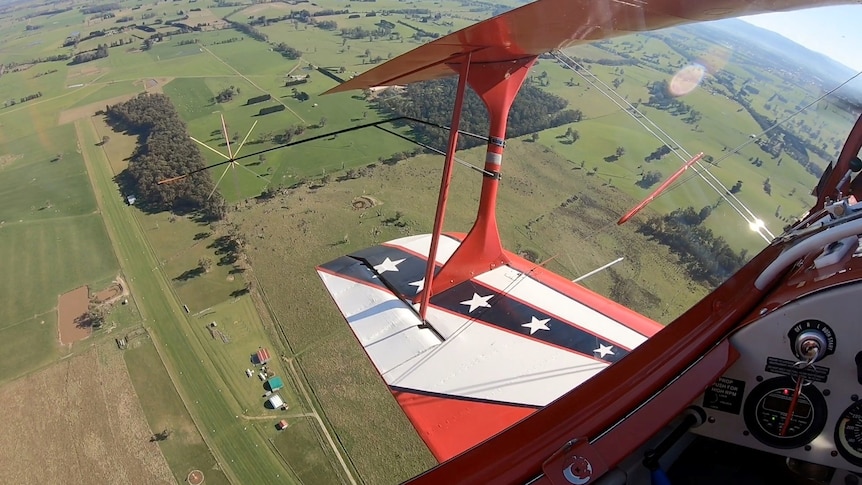A private airstrip in Drouin South that has operated without planning approval for 42 years has had a retrospective permit application rejected after the council received 67 objections from neighbours.
Key points:
- The future of an airstrip in West Gippsland hangs in the balance after a council refuses retrospective approval
- Council received almost 70 objections to the Drouin South airfield application
- Its owner is considering taking the matter to VCAT
While the owner of the airfield on Yuulong Road, Terry Williamson described the airstrip as a community asset, opponents complained to the council about noise from small aircraft and potential biosecurity issues for neighboring farmland from people retrieving recreationally launched rockets.
“I thought I was doing a good thing and a few years ago, I thought the community all were for it — but times change,” Mr Williamson said.
Baw Baw Shire Council has been trying to manage conflict between airstrip users and neighbours, and last week was considering whether it could retrospectively approve some of the modifications made to the airstrip.
Mr Williamson said he has submitted the planning application at the council’s request.
He said the permit was initially for an authorized landing area, which was amended by council to an airfield.
The council’s director of planning and development Leanne Hurst said no planning permit had ever been issued to use the land for either an airfield, airstrip or authorized landing area.
Last week councillors unanimously voted against the application.
The application was refused on a number of grounds including failing to respond to the purpose of the farm zone and failing to provide sufficient information in the application.
Neighbors say they’ve suffered for years
Dairy farmer Jennifer Clough told the council the plans using the airstrip were so noisy if you were outside you would often have to stop conversations.
She told the meeting the Victorian Rocketry Association’s use of the airstrip also caused issues on her farm.
“They have GPS [on the rockets] and the owners come looking for them with no regard for privacy or security or WorkSafe issues … in this current climate security on dairy farms is of paramount importance,” Ms Clough said.
Another resident Jane Moss told the meeting some residents had sold their houses and moved away because of the airfield.
“It’s been years of us objecting and years of the emotion, with us putting up with the impact on our livelihoods for somebody’s hobby,” she said.
‘We did everything they asked’
Mr Williamson, who is not a pilot himself, said he may appeal the council’s decision at the Victorian Civil and Administrative Tribunal (VCAT).
“We did everything that they [the council planners] asked [in the planning application process]. We got new sound reports,” Mr Williamson said.
“The whole idea of an airfield is good for community, for the whole region, that argument was left behind [at the meeting].”
Pilot David Hooke, who owns a hangar at the airfield, said the argument about the number of plane movements had been overblown.
“There would be only five of us who regularly fly our aircraft, and when I say regularly, once a month, once a week, once a fortnight what [the objectors] were saying about multiple aircraft coming and going all day every day is patently false,” Mr Hooke said.
He said pilots must fly certain circuits set down by the Civil Aviation Safety Authority (CASA) to practice take-offs and landings.
“In many ways, there’s nothing much we can do differently to appease the neighbours,” he said.
Council’s concerns
Baw Baw Shire Mayor Michael Leaney told last week’s meeting he was concerned the site had changed and was not meeting existing use rights.
Councilors heard that Mr Williamson was paid $40 a week to store Mr Hooke’s plans.
“I remember some years ago, when this was before council previously, we were told that there … was no money changing hands at all,” Mr Leaney said at the meeting.
Mr Williamson said the money collected from plane owners goes to hangar insurance and maintenance on the grounds.
“The money we collect is virtually the cost of running that airfield, there’s no real profit,” Mr Williamson said.
.
